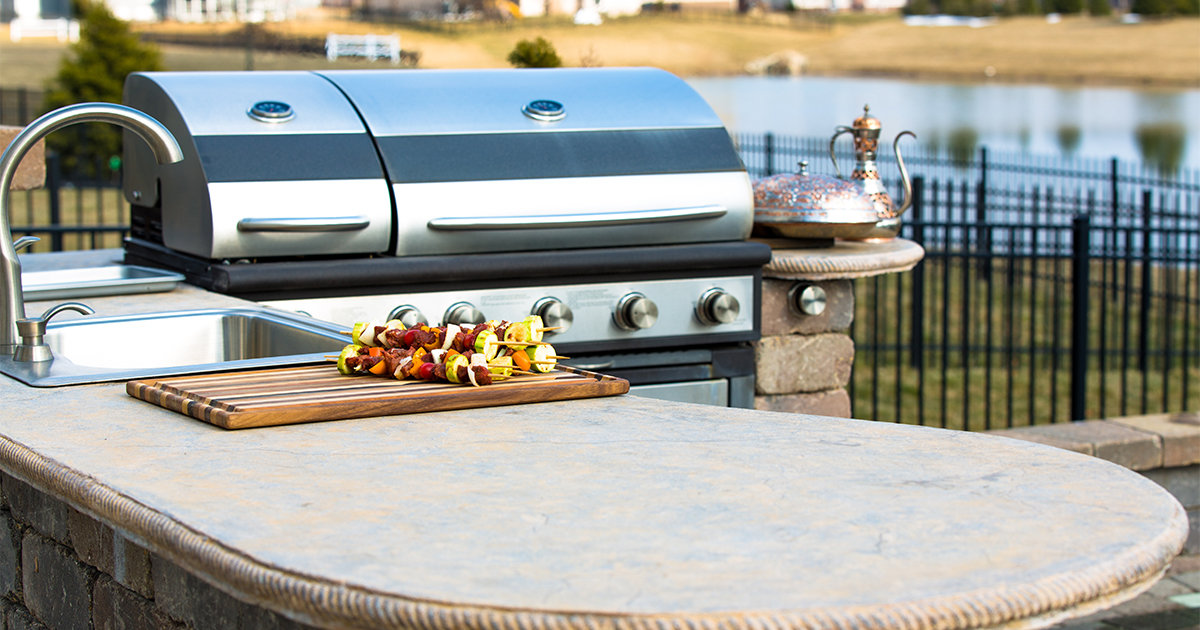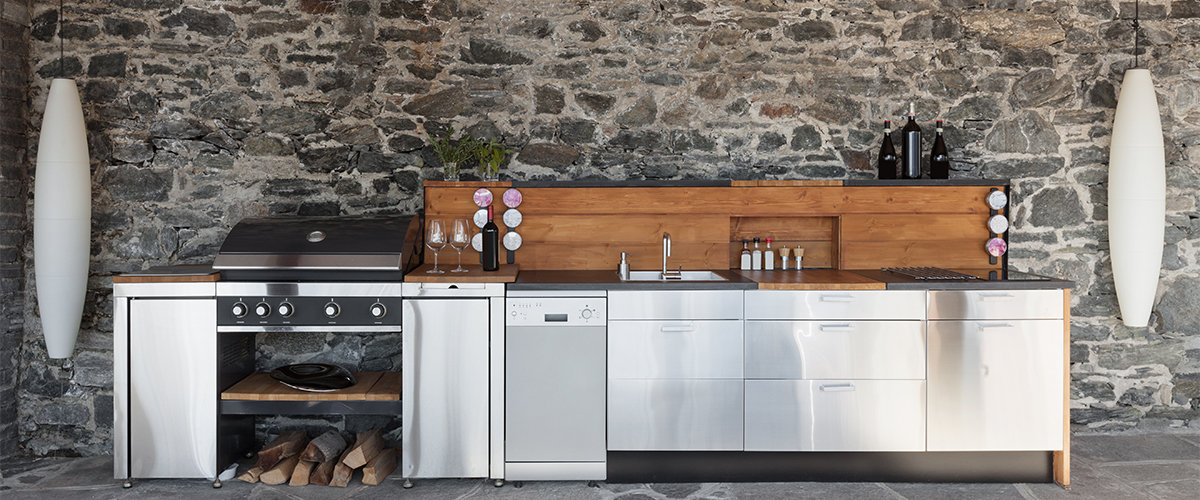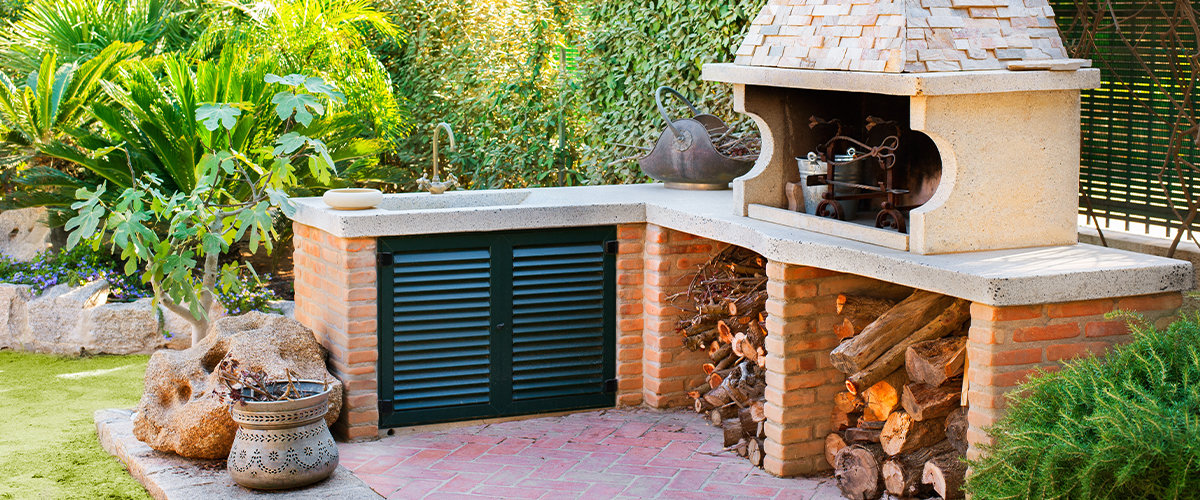
We collect basic website visitor information on this website and store it in cookies. We also utilize Google Analytics to track page view information to assist us in improving our website.
Spring Season starting to book up. Promotions Available for Winter.

If you’re planning to renovate an outdoor kitchen for your backyard space, countertops are an essential part of the design process.
When choosing the right material for your outdoor countertop, durability is essential. After you choose a resistant material, then you can work through what will work best visually.
Look through the suggestions below to see what outdoor kitchen countertop material would work best for you.
While concrete is durable and stylish, it can be prone to cracking. It’s important that a concrete countertop is installed correctly. Sealing is necessary upon installation and the concrete needs to be resealed regularly. Try to avoid having the countertop in direct sunlight, as concrete can be prone to fading.
Although extra maintenance is required, if a concrete countertop is cared for correctly, it can serve as a modern addition to your outdoor kitchen.
Stones are a popular outdoor countertop material for a reason. There are endless style and design options, and they offer long-term sturdiness.
Stone countertops can be personalized to suit any space, with a variety of colours and textures to choose from.
If you’d like your stone to last longer, consider sealing it. Although it isn’t a necessity, an added layer of protection can never hurt.
The look of stainless steel countertops is timeless – sleek and clean. Stainless steel is durable as well as ant-bacterial, and is an overall low-mantience option.

Ensure that your countertops are offered some shade, as they get very hot when exposed to direct sunlight.
Quartz countertops are a raved about kitchen feature. However, they aren’t as well suited for outdoor kitchens as they are for ones indoors.
Although quartz countertops don’t need to be sealed, they can be prone to discolouration from the sun, so be mindful of this if you decide to install them.
Porcelain is a highly-durable, stylish countertop option.
It doesn’t fade in the sun, won’t need any sealing, doesn’t stain, and the material is scratch-resistant – except against ceramic knives, so be mindful if you use them!
Overall, porcelain is a great outdoor countertop option.
Tile countertops offer a variety of styling options, and can drastically set the tone of an outdoor space depending on what you choose.

However, tile is not the smartest choice for colder climates. The freeze-thaw cycle can increase the risk of cracking. As well, be mindful of grout stains that can be difficult to remove over time despite sealing.
Glass is one of the more unique options for an outdoor countertop material.
Glass is highly-customizable but can be stained by acidic foods and drinks. However, more success can be found with white glass countertops, which is a durable subtype.
Wood countertops offer a rustic element that would be well-suited to many outdoor spaces.
Although an aesthetically-pleasing option, wood takes a lot of effort to maintain. Rain, heat, sunlight, and other weather elements can significantly wear down the durability and look of wood countertops.
For some though, the look of outdoor wood countertops is worth the effort to maintain.
Granite countertops are timeless, as well as being the most durable stone on the market.

Granite countertops don’t stain, hold up well to the outdoor weather elements, and is available in different varieties.
You really can’t go wrong with granite, so it might be your best bet!
Marble is an ultra-modern, well-loved material for modern countertops. However, there are some upkeep requirements to have in mind if you want to choose this option.
Because it is a softer stone compared to other countertop materials, the weather will wear it down over time.
Once you’ve gone through the process of choosing the right countertop material that suits your space and design preferences, you can get started on the rest of your outdoor kitchen renovations!

